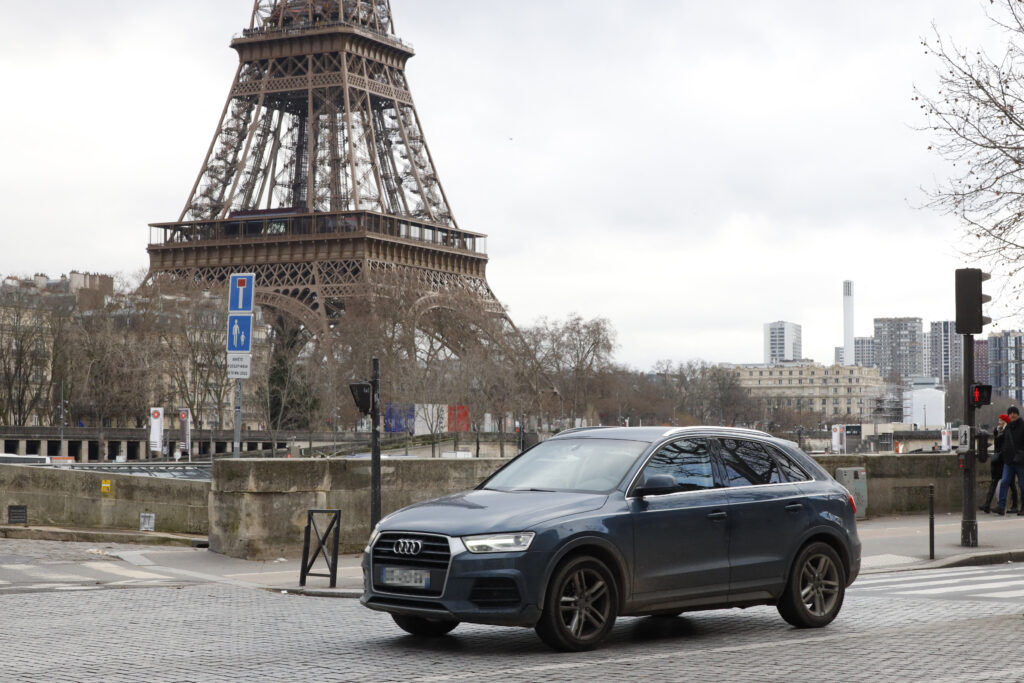The battle against large vehicles in Brussels has mainly been fought by activists, but in Paris, a new regulation against such cars will soon come into force. One NGO has stressed that the Belgian capital should follow suit.
Residents of the French capital on Sunday voted on the presence of sports utility vehicles (SUVs) in the city during a referendum organised by the Paris City Council, which posed the question: "Are you for or against establishing a specific tariff for the parking of heavy, cumbersome and polluting individual cars?"
Only around 5.68% of the 1.3 million voters in the capital took part in the referendum, but 54.55% voted in favour of a specific tariff. As a result, a threefold increase in the parking fees for large, heavy vehicles such as SUVs, will be imposed in the capital to "reduce the nuisance" they cause.
Paris' Mayor Anne Hidalgo justified the proposal in early December saying: "The bigger it is, the more it pollutes." She also cited road safety concerns, claiming accidents involving SUVs are "twice as fatal for pedestrians as those with a standard car."
The vehicles primarily singled out are SUVs, as well as 4x4s (for regular or hybrid cars weighing more than 1,600 kilograms, or fully electric cars over 2,000 kilograms). Specifically, owners of such heavy cars will have to pay €18 an hour to park in the central arrondissements of Paris. Beyond that, it would be €12 an hour.
Hidalgo aims to implement the new tariff from 1 September 2024. However, the rule does not apply to residents of Paris, certain people who work in the capital and people with disabilities.
'Usefulness far from obvious'
Pierre Dornier, Director of the NGO Les chercheurs d'air, stressed that Brussels must follow Paris's example by introducing higher parking charges for these vehicles "to reduce the number of them on our streets."
In recent years, cars of all categories have gradually become wider, (at an average rate of 1 cm every two years), longer and heavier (around 250 kg since 1990), a recent report by NGO Transport & Environment showed. The average car power has also increased by 60% (from 65 kW in 2000 to 103 kW in 2021). In some cases, SUVs are as heavy as two rhinoceroses and as long as three bathtubs.
"Their disproportionate dimensions make them particularly polluting and dangerous in big cities, where their usefulness is far from obvious," he noted.
While drivers in heavier cars are better protected in accidents, they pose a much bigger risk for those in smaller cars, as well as pedestrians and cyclists.
For this reason, and due to the fact they are more polluting, several SUVs were targeted by environmental activists last year in Brussels. They flattened the tyres of several vehicles in the Flagey area to protest against the number of large luxury vehicles in the capital.
Around the same time, the Brussels-Capital Region Government began investigating the possibility of whether and how it could keep SUVs away from the city, stating that SUVs are too big, heavy and, above all, dangerous.
Brussels Mobility Minister Elke Van den Brandt (Groen) confirmed that the region is still in the process of carrying out a study to identify possible scenarios for combatting the growth in the number of cars and pick-ups.
"We're looking at a whole range of options, from taxing cars by weight or volume, to increasing parking charges, to an outright ban on Pick-ups, such as a ban around schools or even throughout the Region," she told The Brussels Times. The results of the study should be available by the end of March, for the next government to work on.

